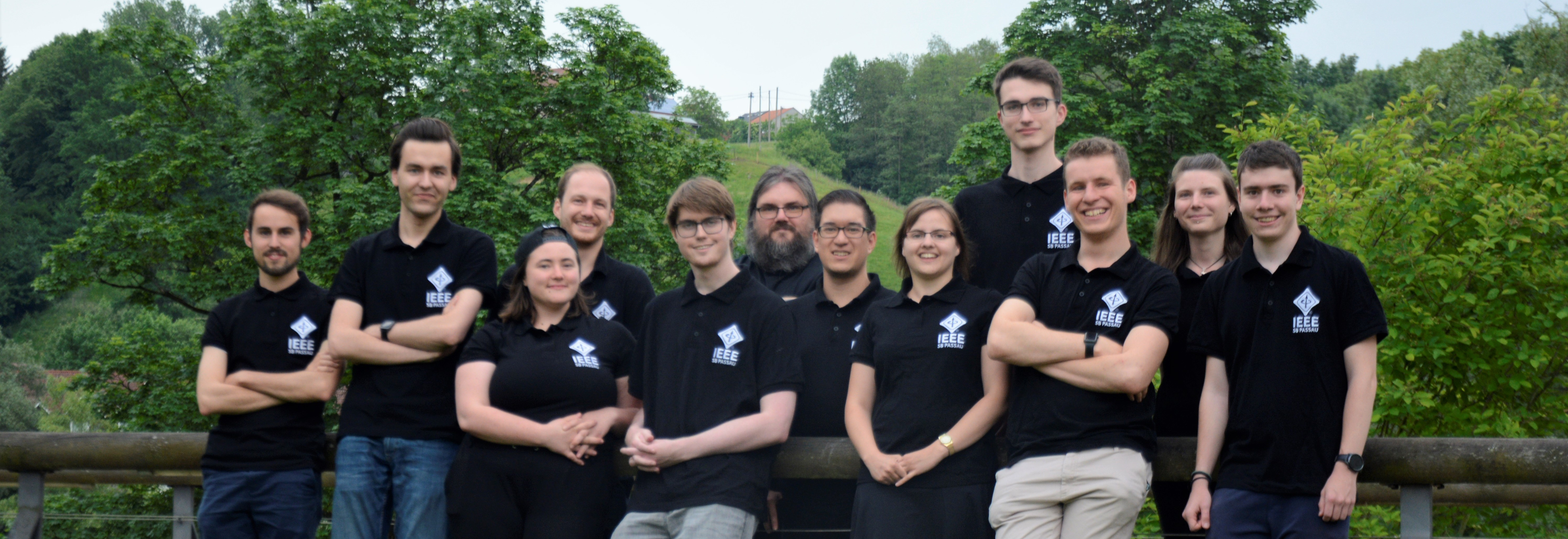In advance of the Software Engineering Project (SEP) in the winter term 2013/14 we organized a series of talks helping you to get started with the SEP for the first time.
The slides of each talk can be found here:
Tooluebersicht Bugtracker Idea Codeanalyse Junit LaTex marathonITE Projektmanagement RationalSoftwareArchitect SVN
At the 28th of January 2013, Philipp Jovanovic, a researcher at the Chair of Mathematics with focus Symbolic Computation, gave a talk about „Attacks on Cryptographic Hardware”.
The slides can be downloaded here.
.. rubric:: Abstract: Algebraische Fehlerbasierte Angriffe :name: abstract-algebraische-fehlerbasierte-angriffe Die Untersuchung kryptographischer Verfahren auf ihre Stärke, sprich auf ihre Sicherheit, ist die wesentliche Aufgabe der Kryptoanalyse. Neben der klassischen Kryptoanalyse, die den Verschlüsselungsalgorithmus eines Verfahrens angreift, wurden in den letzten 15 Jahren verstärkt neue Formen der Kryptoanalyse entwickelt, nämlich die sogenannten Seitenkanalangriffe.
Git is one of the most commonly used distributed version control systems (VCS). It has been developed by Linus Torvalds and is known for being used as the VCS for the Linux kernel. In comparison to other VCS, such as Subversion, distributed VCS do not rely on a central repository; in fact, the repository is distributed among all the users. The talk by Michael Käufl offers an introduction to the use of git and explains typical workflows that are usually applied using git.
OpenStreetMap is an Open Source Project with the
goal to achieve a worldwide geographic database everyone can use for free. Even today, the data, provided by volunteers, is used in maps, for navigation and as part of websites and mobile apps. In their talk, Michael Käufl and Tobias Knerr will explain the idea of
OpenStreetMap, point out possible applications and will provide a live demo of the first steps for taking part in the project.
On June 22nd 2010, Andreas Fischer, Christopher Auer, Katrin Hanauer,
Philipp Wendler and Sebastian Henneberg gave a series of talks on vim, the well known editor. The talks covered an introduction to vim and its history, as well as advanced topics such as the use of vim for writing LaTeX documents and software programs. The event was completed by a short demo of what you can do with vim
and a talk about the usability concepts around “Act withoud thinking”.
On Monday, December 7th 2009, the Stud.IP team will talk about their hardware and software and offer the opportunity to ask questions. Additionally, you may ask for new features or other changes on the system. Among other things, they will talk about:
Statistics on server requests and load Server choice: hardware and software Historical overview: how everything began Scheduled features (roadmap) Feature requests … and many more.
On November 24th 2009, Wolfgang Stief and Constantin Gonzalez had two talks on the topics “OpenSolaris” and “ZFS”. The first talk gave an impression of the features of OpenSolaris and the projects in the community. Moreover, the possibilities in comparison to other operating systems were illustrated. The second talk explained the file system ZFS in detail: Which features work better than other file systems? What new features are available? Which possibilities are offered by ZFS?
PhD candicates and scientists often face unclear priorities and
motivation problems. “Getting Things Done” shows ways to solve both challenges. The workshop on November 9th 2009 by Jens Oberender started with an introduction to the method in general. Subsequently, the participants discussed how the GTD principles can make their everyday life better. Open questions on the concrete application of these principles were collected on cards, before they were clustered and discussed.
When dealing with professional and ethical behavior, complex questions
can arise very quickly. A Code of Ethics provides a consensus created by experts, which can guide to professional practices for a specific career path. The Institute of Electrical and Electronic Engineers (IEEE) provides
such behavior recommendations for engineers and computer scientists. Moreover, there is a special version for questions on ethical practices in software engineering. The talk on June 2nd 2009 by Jens Oberender outlined the emergence of
CCC_Vortrag On June 26th 2008, Franz Pletz, member of the Chaos Computer Club e.V. http://www.ccc.de/, will talk about the threats of TMP and RFID chips. If you wonder about the meaning of these abbreviations and their threats to your privacy, you can find a good explanation on the website of the Chaos Computer Club.
RFID - Radio Frequency Identification - Today in your cafeteria debit card, tomorrow in your shirt?











